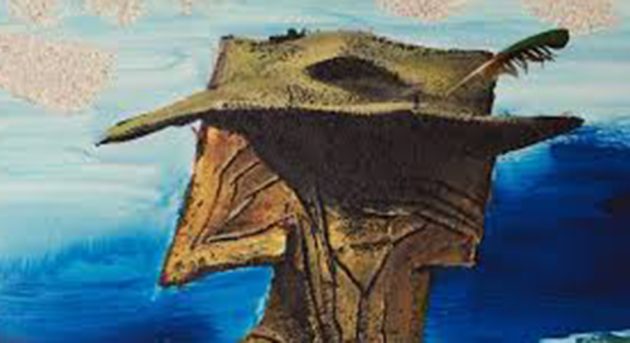Is Australia still a lucky country?
On May 26 Hayes Theatre Company will premiere a new all-Aussie production, The Lucky Country. According to its writer, Vidya Makan, the musical explores Australian identity: ‘What does it mean to be Australian? Who are we as a nation when we attempt to include ALL the parts of how we came to be?’
The musical takes its title from Donald Horne’s 1964 book of the same name. Horne took complacency to task in The Lucky Country, suggesting that Australia developed wealth and power as a consequence of luck rather than strategy, with an over- reliance on its climate and abundant natural resources. Horne painted a picture of Australia as a nation manacled to its past and unimaginative, completely dependent on following the models of other first-world nations and lacking in artistic originality.
One critic described the book as ‘a bucket of cold saltwater emptied onto the belly of a dreaming sunbather’. In other words, Horne’s work can be seen as something of a wake-up call for Aussie leaders.
Nevertheless, the term ‘lucky country’ stuck, and has morphed into more benign interpretations. It is easy to see why, given Australia’s beautiful landscapes and relatively stable political and economic systems. So was Donald Horne right about the reliance on luck? It’s worth remembering that the book was written at the pinnacle of the ‘boom period’ that lasted from the 1940s to the 1970s. In the 60s, 70 per cent of Australians owned – or had tangible plans to own – their own home, and enjoyed the highest rate of car ownership in the world. It could be argued that Aussies had every reason to rest on their laurels during this period.
But luck was tested in 1973, when Britain joined the Common Market, affecting Australia’s export industry. At the same time, the growth of technology and imports from Asia led to competition for local manufacturing industries. Reliance on international demand meant that Australia’s position was somewhat precarious at this point. By the 1980s, oil prices were falling and unemployment was rising.
This was partly offset by the emergence of tourism and the skilled migration programme, yet the situation in the 80s was worrying enough for Paul Keating to warn that Australia was in danger of becoming a ‘banana republic’. This fear did not materialize, however, as Australia diversified its export base: in 1964, the UK had been Australia’s primary export destination but by 2014 Asia accounted for 83 percent of exports; over the same period, goods and services exported ranged from a predominance of wool and wheat in 1964 to a top two of coal and iron ore (and concentrates) in 2014.
While luck no doubt played a role in this development (Australia’s coal resources are among the largest in the world), perhaps some savvy trade deals played a part too. In any event, in the fifty years from the publication of The Lucky Country Australia’s exports grew from $3.2 billion to $331.2 billion, averaging growth of 10.5 per cent per year.
In 2005, the year of Donald Horne’s death, he admitted that Australia had come a long way since he’d written the book. But he also thought that a recent mining boom had resurrected the spirit of complacency. He identified two areas in which Australia was still, in his view, lacking: the ‘lucky country’ mentality (premised on the aforementioned mining boom), and what he termed ‘derivativeness’. By this he meant that Australia was still prone to mimicking other countries, particularly in terms of political models.
Horne could well have been prophetic in warning against copying other countries’ systems. In 2023, Australia – like the rest of world – will be witnessing, and learning from, the pitfalls of the UK and American political shenanigans. Britain’s post-Brexit catfight and the USA’s extreme left/right divisions offer only models of what not to be. In both nations, the rise of populism has led to self-destruction and fragmented national identity. This is not something that Australia would benefit from emulating.
In this sense, Australia really is a ‘lucky country’ in that it has a unique opportunity to fashion an original path ahead. Speaking to the Sydney Morning Herald, intellectual and activist Noel Person advocated a vision for Australian identity based on the forging of three elements: its cultural heritage (Australia is home to the oldest continuing indigenous population on earth), British-influenced democracy, and multiculturalism borne of immigration. The path forward, it is suggested, should flow from the distinctly Australian elements: its indigenous community and a commitment to reconciliation. The danger of taking an alternative path is the separatist route of the USA and, to some extent, the UK.
From the promotional material for Makan’s iteration of The Lucky Country, it sounds like reconciliation and recognition are exactly the route that the musical is to go down. It features a diverse array of characters, from a World War II veteran to a young refugee in Mingoola to a Chinese restauranteur, a wannabe Byron Bay nudist. Is Australia a nation that reflects who they are, a homeland where they can actualise their aspirations?
The musical states that it gives a voice to the marginalised. This is testament to the fact that not all Aussies are ‘lucky’. Today, a third of the Australian population live outside of the major cities; rural and regional areas are those hit hardest by economic downturns. Young people have less hope of home ownership than ever before. Environmental factors such as warmer oceans, poorer soil and disappearing forests stand in direct confrontation with Australia’s climate-damaging resources, like coal. Over recent years, the country has been beset with fires, floods and droughts.
Notions of identity, family and belonging are challenged by dislocation and fluidity. Constant reinvention is a task of modern life that is set to become, well, constant. And yet, the Aussie spirit of optimism endures. In 2021, the National Australian Bank’s study, ‘Life in the Lucky Country’, found that 94 per cent of Australians still find this island nation a great place to live. The top three reasons that make it a special place to live – according to respondents – are its access to open spaces, the Government’s containment of COVID-19, and its general friendliness and relaxed lifestyle.
And the good news is that the most buoyant respondents were those in the 18-29 age bracket, who believe they have a voice in shaping the country’s future. Australia, according to the report, is in an ‘enviable position’. Added to which, 2023 is the Chinese Year of the Rabbit – a symbol of luck and good fortune. Despite the relentless onslaught of modern scourges, perhaps Australia really is destined to sidestep the worst of them and carve out an independent future – by making her own luck this time.




